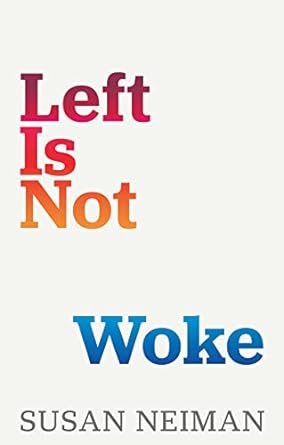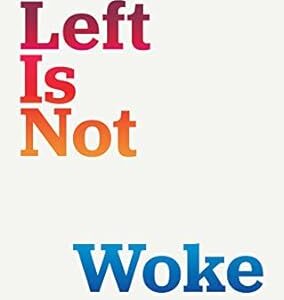These are the quotes I noted while reading Left Is Not Woke by Susan Neiman:
- Albert Einstein wrote a proud defense of socialism at the height of the Cold War.
- Declaration remains aspirational. To stand on the left is to insist that those aspirations are not utopian.
- Philosophical ideas that are central to any left-wing standpoint: a commitment to universalism over tribalism, a firm distinction between justice and power, and a belief in the possibility of progress. All these ideas are connected.
- Staying woke to injustice, being on the watch for signs of discrimination – what could be wrong with that? Yet in a few short years, woke was transformed from a term of praise to a term of abuse.
- Woke has become a politics of symbols instead of social change.
- Can woke be defined? It begins with concern for marginalized persons.
- Woke emphasizes the ways in which particular groups have been denied justice, and seeks to rectify and repair the damage.
- Woke demands that nations and peoples face up to their criminal histories.
- The woke movement expresses empathy for the marginalized, indignation at the plight of the oppressed, determination that historical wrongs should be righted.
- We rarely notice the assumptions now embedded in the culture, for they’re usually expressed as self-evident truths.
- Neither black nor white nor brown communities are homogenous. We do things for other reasons than being members of a tribe.
- You cannot hope to make progress by sawing at the branch you don’t know you are sitting on.
- “Until the middle of the twentieth century, no one who was asked about a person’s identity would have mentioned race, sex, class, nationality, region, or religion.” – Kwame Anthony Appiah
- Might and right often fail to coincide.
- “Never forget!” is a demand to recall suffering. Yet undergoing suffering isn’t a virtue at all, and it rarely creates any.
- “Pain, whether born of oppression or not, is a poor teacher. Suffering is partial, shortsighted, and self-absorbed.” – Olúféme O. Táíwò
- The valorization of trauma leads to a politics of self-expression rather than social change.
- “A life led at the sharp end of any given set of power relations provides for critical understanding where a life cushioned by the possession of power does not.” – Miranda Fricker
- Caring for victims is a virtue, being one is not.
- The idea that one law should apply to Protestants and Catholics, Jews and Muslims, lords and peasants, simply in virtue of their common humanity is a recent achievement.
- If the demands of minorities are not seen as human rights but as the rights of particular groups, what prevents a majority from insisting on its own?
- From the idea that all people, wherever they come from, have a claim to human dignity, it hardly follows that differences between people do not matter.
- To claim that someone’s rights have been violated is to understand her suffering as an injustice, not simply a matter for pity.
- Sometimes you need the master’s tools to dismantle the master’s house.
- When you experience every individual as an instance of the Other, it’s hard to experience them as individuals, easy to view them as representations of a tribe. This makes it hard to imagine they might hold a position that isn’t tribalist.
- Nothing expresses pain, or the longing for freedom, more immediately than art in all its forms.
- Some things are better to show than to tell.
- For only a baby believes that a shepherd feeds his sheep for their benefit.
- Some moral claims are hidden claims to power.
- Reason’s most important function is to uphold the force of ideals. Unless you can show that reality can be changed on the basis of ideas of reasons, every demand for change will be dismissed as utopian fantasy.
- Ideals are not measured by how well they fit reality; reality is judged by how well it lives up to ideals.
- In a world history saturated with violence, concepts like right and wrong disappear. Both are merely rhetoric used to disguise the only force there is: power.
- Most of those who would have called themselves leftists a generation ago now call themselves progressives.
- To stand on the left is to stand behind the idea that people can work together to make significant improvements in the real conditions of their own and others’ lives.
- Nietzsche wrote that hope was the worst of all the evils in Pandora’s box, for it ensures we will be eternally tormented.
- Progress creates resistance in the form of backlash.
- Heroes close the gap between what ought to be and what is. They show that it’s not only possible to use our freedom to stand against injustice, but that some people actually did so.
- What you think is possible determines the framework in which you act.

